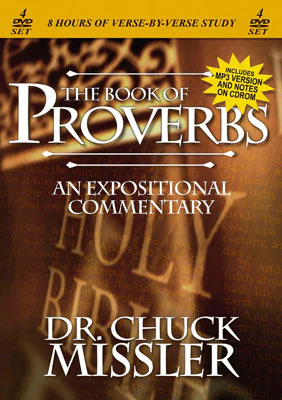The Hebrew approach to hermeneutics (the theories of interpretation) views four levels of interpretation: 1) Peshat, the literal, direct meaning; 2) Remez, an allegorical significance; a hint of something deeper; 3) Derash, the homiletical, or practical application; and 4) Sod, the mystical or hidden meaning.
This paradigm emerged before the 12th century, and the rabbis use the mnemonic, PaRDeS, (The Garden, or Paradise), to remember them. The first three have their parallels in traditional Christian hermeneutics (yet we would probably order them with Remez as third and Derash as second, but that would spoil their mnemonic).
Proverbs Chapter 30 opens with a provocative list of names:
The words of Agur the son of Jakeh, even the prophecy: the man spake unto Ithiel, even unto Ithiel and Ucal,
Proverbs 30:1
This strange verse has been the subject of many fanciful conjectures. Let's see what may lie behind this unusual list of names.
עָגוּר
Agur: From agar, "to collect." "The collector" may possibly be a symbolical name, like Ecclesiastes, "the preacher" or "assembler." He was the son of Jakeh, a mysterious collector of wise sayings and, ostensibly, inspired counsels to Ithiel and Ucal. The rabbis, according to Rashi and Jerome, interpreted this name as symbolizing Solomon the Koheleth, the preacher or assembler. Solomon had several names: Jedidiah, "beloved by Jehovah," the name which, by the mouth of Nathan, the Lord gave to Solomon at his birth as a token of the divine favor; 1 and possibly Lemuel, "devoted to God."
From "to collect." "The collector" may possibly be a symbolical name, like Ecclesiastes, "the preacher" or "assembler." He was the son of Jakeh, a mysterious collector of wise sayings and, ostensibly, inspired counsels to Ithiel and Ucal. The rabbis, according to Rashi and Jerome, interpreted this name as symbolizing Solomon the the preacher or assembler. Solomon had several names: Jedidiah, "beloved by Jehovah," the name which, by the mouth of Nathan, the Lord gave to Solomon at his birth as a token of the divine favor; and possibly Lemuel, "devoted to God."
If Agur is, indeed, an enigmatic allusion to Solomon, then we should not be surprised if this passage incorporates some other hidden implications from the very one who trafficked in "dark sayings":
I will open my mouth in a parable: I will utter dark sayings of old: Which we have heard and known, and our fathers have told us.
Psalm 78:2-3
A wise man will hear, and will increase learning; and a man of understanding shall attain unto wise counsels: To understand a proverb, and the interpretation; the words of the wise, and their dark sayings.
Proverbs 1:5-6
So let's look further:
בִּן־יָקֶ֗ה - Son of Jakeh: Jakeh, from yaqeh, "carefully religious," "obedient," or "pious," was the father of Agur, and would be, thus, David.
הַמַּ֫שָּׂ֥א נְאֻ֣ם הַ֖גֶּבֶר - "Even the prophecy the man spake": This is an imputed translation from difficult Hebrew: actually, ha massa (the burden) ne'um (oracle) ha-gebber (the mighty): "the mighty oracle prophesied"
אִיתִיאֵל - Ithiel: Ithiel, "God comes, arrives, is with me;" is equivalent to Immanuel, "God with us."2
אֻכָל - Ucal: Ucal may actually be a verb, `ukhal, to be consumed.
A Messianic Allusion?
The "mighty oracle" would seem to suggest that "God arrives to be consumed!" Thus, this first verse presents the following:
The words gathered of the wise son of the pious father, the burden (prophecy) of the mighty oracle, that El (God) arrives to be consumed.
This, too, can be viewed in several ways. Jesus uses this same idiom in His Bread of Life discourse:
I am the living bread which came down from heaven: if any man eat of this bread, he shall live for ever: and the bread that I will give is my flesh, which I will give for the life of the world.
John 6:51
Proverbs 30:1 also can be seen as referring to the Cross. Let's examine the next few verses in this light.
Surely I am more brutish [natural] than any man [ish], and have not the understanding of a man [Adam].
Proverbs 30:2
The term "brutish" is actually "natural" or "fleshly"; the first word for man is ish, the generic term for mankind; the second word for man is Adam. Yet, what follows is clearly deity:
I neither learned wisdom, nor [yet] have the knowledge of the holy.
Proverbs 30:3
His wisdom wasn't learned: it was a gift. The subsequent negative "nor" is not in the Hebrew: his knowledge of the holies (plural) was intrinsic. He then poses a series of riddles concerning his identity:
Who hath ascended up into heaven, or descended?3 Who hath gathered the wind in his fists?4 Who hath bound the waters in a garment?5 Who hath established all the ends of the earth?6 What is his name, and what is his son's name, if thou canst tell?7
Proverbs 30:4
These sound a lot like the challenges that God gave Job!8 These clearly allude to God-and the Son of God! This challenge is similar to the one Jesus used to confound the Pharisees:
While the Pharisees were gathered together, Jesus asked them, Saying, What think ye of Christ? Whose son is he? They say unto him, The Son of David. He saith unto them, How then doth David in spirit call him Lord, saying, The LORD said unto my Lord, Sit thou on my right hand, till I make thine enemies thy footstool? [quoting Psalm 110:1] If David then call him Lord, how is he his son? And no man was able to answer him a word, neither durst any man from that day forth ask him any more questions.
Matthew 22:41-46
They couldn't decipher His riddle from Psalm 110. Let's be sure we can!
Every word of God is pure: he is a shield unto them that put their trust in him.
Proverbs 30:5
In Proverbs 30:1-5, we actually have a Messianic reference! Clearly the Son of God, yet incarnate, and prophesied to be "consumed"! The Word of God is, indeed, inexhaustible! Isn't that what you would expect? A surprise in every "nook and cranny."
Notes:
- 2 Samuel 12:25
- Isaiah 7:14; 8:8
- He not only descended: He will return again when they acknowledge Him (Hosea 5:15)
- Psalm 135:7
- Psalm 104:6
- Psalm 72:8
- Psalm 110:1
- Job 38






